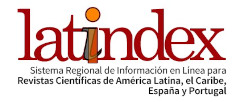Model evaluation of the economic viability of co-generation power the sugar-alcohol sector using sugarcane bagasse methodology by the aplication of system dynamics
Keywords:
economic viability, co-generation of electricity, system dynamicsAbstract
This article objective to analyze the economic feasibility of co-generation power plant in a sugar-alcohol sector in the use of bagasse in the sugar cane through the application of system dynamics methodology, tool geared to help the decision-making. The analysis used secondary data obtained from the study of Esperancini & Nagaoka (2006), which addressed the feasibility of co-generation from another point of view. It is concluded that considering the size and characteristics of the investment becomes more attractive economically make the investment using the resources of others. This is because the minimum price to receive energy to provide the investment feasibility may not be less than R$ 54,63 MW, using a combination of 20% of own resources and 80% of resources funded.Downloads
How to Cite
Nascimento, F. N. do, Oliveira Neto, O. J. de, & Figueiredo, R. S. (2011). Model evaluation of the economic viability of co-generation power the sugar-alcohol sector using sugarcane bagasse methodology by the aplication of system dynamics. Revista Brasileira De Gestão E Desenvolvimento Regional, 7(1). Retrieved from https://www.rbgdr.com.br/revista/index.php/rbgdr/article/view/356
Issue
Section
Artigos
License
Authors who have their papers accepted and published in the Brazilian Journal of Regional Management and Development must agree to the copyright policy CC BY https://creativecommons.org/licenses/by/4.0/.
If the article is accepted for publication, the copyright is automatically assigned to the Brazilian Journal of Regional Management and Development.
















